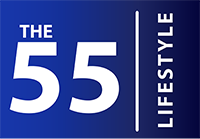Antioxidants, among a host of other health-conscience topics, flooded the marketplace within the last decade or two as a key factor in healthy living. For men 50 and over, antioxidants in your diet planning should be a non-starter anyway as they come in a range of foods and our levels decrease with age. To help with this, we’ve researched the topic and provided the pertinent information so you can make an informed decision. Let’s start with finding out what they are.
What Are Antioxidants?
Defining antioxidants is a bit of a multiple-step process to see the full benefits.
If there is an antioxidant, then there is an oxidant. Oxidation is the body’s production of free-radical molecules that can damage our cells. We may attribute this damage to diseases like cancer, cardiovascular disease, diabetes, Alzheimer’s, and others.
The creation of the unstable, free radicals is a natural occurrence when the body converts food into energy, in commonplace factors such as exercise or exposure to sunlight, but also from environmental sources like air pollution, cigarette smoke and even alcohol. But your body, in a healthy state, maintains a balance between free radicals and antioxidants. However, if the free radicals become too much for the body to regulate, the condition of oxidative stress follows.
There isn’t one “antioxidant” per se, but rather hundred if not thousands of different substances that act as an antioxidant. They are chemical compounds, can be natural or man-made, and impair or reduce the process of oxidation. Common to us are vitamin C, vitamin E, alpha- and beta-carotenes, selenium, manganese, CoQ10, phenols, and many more.
Laboratory experiments, coupled with detailed research, verify antioxidants contradict the effects of the oxidative stress to cells.
Where do you get antioxidants?
We know through health and diet awareness, wellness programs and studies we naturally find antioxidants in fruits and vegetables. Just for a little medical background, sources are:
- Enzymatic – superoxide dismutase, catalase, and glutathione systems. (These networks of enzymes work together and with other minerals reduce the oxidative process.)
- Nonenzymatic – ascorbic acid (Vitamin C), Glutathione (one of the most important cellular antioxidants) melatonin (yes, the so-called sleep hormone), Tocopherols and tocotrienols (Vitamin E), and uric acid.
So how does that translate into good dietary practices? Luckily, nature packs everything we need into our food. Just about every source researched showed a common core of the same items:
- Cruciferous and other types of vegetables – broccoli, cauliflower, kale, Brussel sprouts, potatoes, spinach, onions, legumes, artichokes, carrots. (Check out our blog on Healthy Foods for Men 50 and Over)
- Fruits – tomatoes (technically a fruit), berries such as strawberries and blueberries, citrus, mangos, prunes and olives.
- Green and black teas have had considerable studies done because of their phenolic compounds (important in cancer prevention.)
- Indian medicinal plants such as garlic, aloe, cinnamon, turmeric, curry, and ginger, just to name a few.
Should you take an antioxidant supplement?
There are, as with so many other dietary niches, an ample amount of antioxidant supplements. They’re available in everything from sports drinks to breakfast cereals to over-the-counter pills. In a 2009 analysis, the National Health and Nutrition Examination Survey put the number of supplements accounted for in adult nutrition at 54% for Vitamin C, 64% for Vitamin E, 14% of alpha- and beta- carotenes, and 11% of selenium. But with any other supplement, are they effective regarding your health?
Just as we’ve said in other supplement blogs, it’s important to remember the Food and Drug Administration does not regulate dietary supplements. And the sources we reviewed for this blog state rather clearly that there was no verifiable evidence that antioxidant supplements provided any health benefits, and in high volumes can be dangerous. In contrast, all the sources did say the best means to getting your necessary daily nutrients was still in having a balanced diet.
As always, our recommended approach to any supplement is to consult with your doctor and let them work with you to determine the viability or need. Adding any supplemented vitamin or mineral could have unintended consequences, create an otherwise nonexistent problem, even counteract prescribed medicines.
We have listed a couple books in this blog on the subject if you’d like to research further, as knowledge is the best preventative medicine you can rely on! We thank you for your support of our site!
References and source material for this blog:
- Antioxidants: In Depth
- A Grocery Bag of Beneficial Antioxidants
- Free radicals, antioxidants and functional foods: Impact on human health
- Natural phenolic compounds from medicinal herbs and dietary plants: potential use for cancer prevention.
- Antioxidants: Beyond the Hype
The 55 Lifestyle is a participant in the Amazon Services LLC Associates Program, an affiliate advertising program designed to provide a means for sites to earn advertising fees by advertising and linking to Amazon.com.








